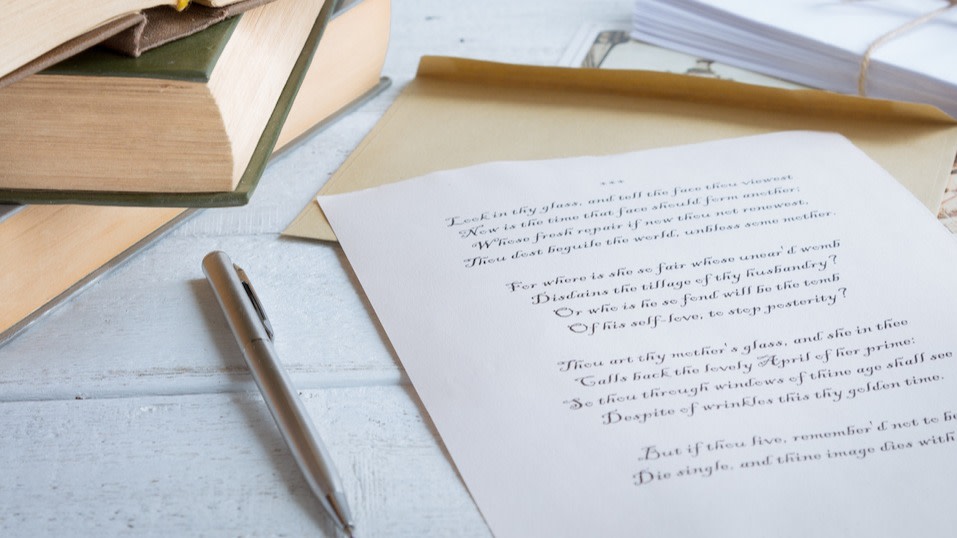What Is a Rondel Poem? How to Write Rondel Poetry
Written by MasterClass
Last updated: Aug 24, 2021 • 2 min read
Rondel poetry is an older form of French lyrical poetry that offers an exciting structure built around repetitive refrains. Learn how to write your own rondel poem.
Learn From the Best
What Is a Rondel Poem?
A rondel (sometimes spelled rondelle) is a French verse form that is built around repetitive refrains. The origin of the rondel can be traced back to fourteenth-century France. Rondels were embraced by other cultures and English language versions quickly became popular. Rondels are a poetic form that developed as a variation of the rondeau and the triolet, which are both based around repeating textual refrains.
A rondelet is a similar form of short poem, generally only seven lines in length. Unlike rondels, rondelets have strict syllabic requirements and don’t include a closing rhyming couplet.
How to Write a Rondel Poem
The basic structure of a rondel is two quatrains (four-line stanzas) followed by either a quintet (five-line stanza) or a sestet (six-line stanza) as the final stanza. The first and second lines of the first stanza appear as refrains at the end of the second and third stanzas. The first and second refrain appear as the last two lines of the second stanza and final stanza—though sometimes only the first line of the poem repeats at the end of the last stanza. Rondels are 13 lines total and generally follow an ABBA ABAB ABBAA rhyme scheme.
An Example of Rondel Poetry
The following is a rondel poem entitled “Rondel of Merciless Beauty,” written by Geoffrey Chaucer. This rondel was originally written in Middle English but has been adapted into modern English language:
Your two great eyes will slay me suddenly;
Their beauty shakes me who was once serene;
Straight through my heart the wound is quick and keen.
Only your word will heal the injury
To my hurt heart, while yet the wound is clean—
Your two great eyes will slay me suddenly;
Their beauty shakes me who was once serene.
Upon my word, I tell you faithfully
Through life and after death you are my queen;
For with my death the whole truth shall be seen.
Your two great eyes will slay me suddenly;
Their beauty shakes me who was once serene;
Straight through my heart the wound is quick and keen.
Want to Learn More About Writing?
Become a better writer with the Masterclass Annual Membership. Gain access to exclusive video lessons taught by literary masters, including Billy Collins, David Baldacci, Joyce Carol Oates, Dan Brown, Margaret Atwood, and more.
